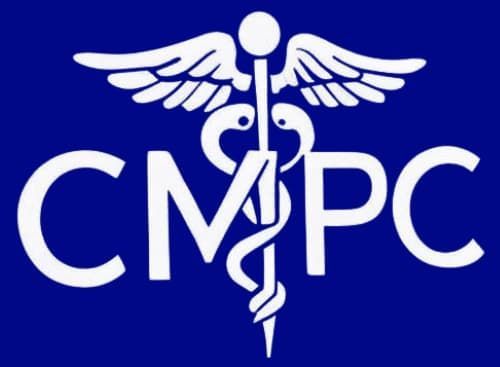
Achieving and maintaining a healthy weight is a lifelong journey that requires a balanced approach tailored to individual needs. For individuals with a high BMI, focusing on safe and sustainable weight loss methods is crucial to achieving long-term success without compromising health. The best weight loss strategies prioritize gradual progress, lifestyle modifications, and evidence-based approaches supporting physical and mental well-being.
Many of us have tried quick-fix solutions or crash diets only to find ourselves back where we started or sometimes in an even worse position. This cycle of weight loss and regain affects our physical health and can also take a toll on our emotional well-being and self-confidence. That's why understanding truly sustainable weight loss approaches is so important.
The Importance of Safe and Sustainable Weight Loss
Losing weight safely and sustainably is essential to prevent the negative consequences often accompanying rapid weight loss approaches. When we lose weight too quickly, our bodies respond in ways that can work against our long-term goals.
- Preservation of muscle mass
- Maintenance of metabolic health
- Prevention of nutritional deficiencies
- Reduced risk of weight regain
- Better psychological relationship with food
Rapid weight loss methods often lead to significant muscle loss, affecting our strength and physical function and slowing down our metabolism. This metabolic slowdown makes it increasingly difficult to continue losing weight and often contributes to weight regain once the restrictive diet ends.
Additionally, extreme diets frequently lack essential nutrients, leading to deficiencies affecting everything from our immune function to our bone health. They also tend to create an unhealthy psychological relationship with food, characterized by feelings of deprivation, guilt, and anxiety.
By contrast, sustainable weight loss approaches focus on gradual changes that become part of your lifestyle, creating habits that support long-term health rather than just short-term results. These approaches recognize that weight management is about calories and creating a balanced relationship with food, activity, and self-care.

Key Principles of Safe and Sustainable Weight Loss
1. Gradual Weight Loss
- Aim for 1-2 pounds per week
- Focus on consistency rather than speed
- Monitor trends rather than daily fluctuations
Losing weight at a rate of 1-2 pounds per week is optimal for most individuals. This pace allows your body to adjust while minimizing muscle loss gradually. It's important to understand that weight loss is rarely linear; in some weeks, you might lose more, in others less, and sometimes you might plateau despite doing everything right.
Rather than becoming discouraged by these natural variations, focus on the overall trend over time. Remember that sustainable weight loss is a marathon, not a sprint. Those who lose weight gradually are much more likely to maintain their results than those who lose weight rapidly.
2. Balanced Nutrition
- Emphasize whole, unprocessed foods
- Include all macronutrients in appropriate proportions
- Focus on nutrient density rather than just calorie counting
- Practice mindful eating
A balanced approach to nutrition is crucial for sustainable weight loss. It requires carefully including various nutrient-dense foods that provide the vitamins, minerals, and macronutrients your body needs to function optimally.
Lean proteins such as chicken, fish, eggs, tofu, and legumes should form an essential part of your diet, as protein helps preserve muscle mass during weight loss and increases satiety, helping you feel fuller for longer. Aim to include a source of protein with each meal.
Healthy fats, including avocados, nuts, seeds, and olive oil, are essential for hormone production, brain health, and the absorption of fat-soluble vitamins. Despite their higher calorie content, including moderate amounts of healthy fats in your diet, can support weight loss by increasing meal satisfaction and reducing cravings.
Complex carbohydrates like whole grains, fruits, vegetables, and legumes provide essential fibre and nutrients while helping to maintain stable blood sugar levels. These foods digest more slowly than refined carbohydrates, providing sustained energy and greater satiety.
Mindful eating, paying full attention to the experience of eating and drinking, can help you recognize true hunger and fullness cues, reduce emotional eating, and derive greater satisfaction from smaller portions.
3. Portion Control
- Learn to recognize appropriate serving sizes
- Use visual cues to estimate portions
- Be mindful of calorie-dense foods
- Practice the plate method
Understanding and implementing proper portion control is often more effective than strict calorie counting for many individuals. Visually estimating appropriate serving sizes can help you maintain a calorie deficit without needing constant measuring and weighing.
Simple strategies like using smaller plates, pre-portioning snacks, and using your hand as a measuring tool (a palm-sized portion of protein, a thumb-sized portion of fats, etc.) can make portion control more intuitive and sustainable.
The plate method is another helpful approach: fill half your plate with non-starchy vegetables, one-quarter with lean protein, and one-quarter with complex carbohydrates. It naturally creates a balanced meal with appropriate portions.
Remember that some foods are more calorie-dense than others. For example, a tablespoon of olive oil contains more calories than several cups of vegetables. This doesn't mean you should avoid calorie-dense foods, but being mindful of their portions is essential for weight management.
4. Regular Physical Activity
- Combine cardiovascular exercise with strength training
- Find activities you genuinely enjoy
- Start slowly and progressively increase the intensity
- Incorporate movement throughout your day
Physical activity is a cornerstone of sustainable weight loss and weight maintenance. Regular exercise burns calories and builds muscle (which increases your metabolic rate), improves insulin sensitivity, enhances mood, and reduces stress.
A comprehensive program should include cardiovascular exercise (walking, swimming, or cycling) and strength training. Cardiovascular exercise is excellent for calorie burning and heart health, while strength training helps preserve and build muscle mass, which is crucial for maintaining your metabolic rate during weight loss.
The most sustainable exercise routine is one that you enjoy and can maintain long-term. Experiment with different activities until you find ones that feel rewarding and that you look forward to. Group classes, sports, or outdoor activities can add a social element that increases motivation and enjoyment.
If you're new to exercise, start slowly with low-impact activities and gradually increase duration and intensity to avoid injury and burnout. Even small increases in daily movement, taking the stairs, parking farther away, or doing short activity breaks throughout the day can contribute significantly to your overall energy expenditure.
5. Behavioural Changes and Mindset
- Identify and address emotional eating triggers
- Develop healthy coping mechanisms for stress
- Create environmental changes that support your goals
- Practice self-compassion during setbacks
Sustainable weight loss requires addressing the behavioural and psychological aspects of eating. Many eat in response to emotions like stress, boredom, or sadness rather than physical hunger. Identifying these triggers and developing alternative coping strategies is essential for long-term success.
Creating an environment that supports your weight loss goals can make healthy choices easier. This might include making nutritious foods available, removing tempting treats from your home, or establishing routines that reduce food-related decision fatigue.
Equally important is developing a healthy mindset around weight loss. This includes setting realistic expectations, practicing self-compassion when you experience setbacks, and focusing on the health benefits of weight loss rather than just the number on the scale.
Remember that occasional indulgences or deviations from your plan are normal and don't constitute failure. Practicing flexibility and resilience, getting back on track after a slip rather than giving up entirely, is a key predictor of long-term success.
Safe Weight Loss Strategies
1. Personalized Nutrition Plans
- Consult with nutrition professionals
- Account for individual dietary needs and preferences
- Address underlying health conditions
- Adjust plans based on progress and feedback
Working with a registered dietitian or nutritionist to create a customized meal plan can significantly enhance your weight loss success. These professionals can help you develop an eating pattern that considers your food preferences, cultural background, lifestyle, and any health conditions you may have.
A personalized approach recognizes that no one-size-fits-all diet works for everyone. Some individuals may thrive on a higher protein intake, while others might do better with a plant-based approach. Factors such as food allergies, medical conditions like diabetes or heart disease, and even your personal schedule and cooking abilities should all be considered.
Moreover, your nutritional needs may shift as your body changes and adapt to your weight loss program. Regular reassessment and adjustment of your nutrition plan ensures continued progress and prevents plateaus.
Our clinic offers comprehensive nutritional assessments and personalized meal planning as part of our weight management program. Our nutrition specialists work closely with you to develop strategies that fit your unique needs and lifestyle, making healthy eating enjoyable and sustainable.
2. Medical Supervision and Support
- Comprehensive health assessments
- Medication options when appropriate
- Regular monitoring and adjustments
- Management of weight-related conditions
Medical supervision can be invaluable for safe and effective weight loss, especially for individuals with higher BMIs or weight-related health conditions. A healthcare provider can thoroughly assess any underlying factors contributing to weight gain, such as hormonal imbalances, medication side effects, or sleep disorders.
Sometimes, prescription medications may be appropriate to support weight loss efforts. These might include appetite suppressants, medicines that reduce fat absorption, or newer options like GLP-1 receptor agonists, which help regulate blood sugar and reduce hunger. When used under proper medical supervision, these medications can be practical tools for breaking through plateaus or jumpstarting weight loss in challenging cases.
Regular monitoring by healthcare professionals ensures that your weight loss program remains safe and effective. This includes tracking not just weight but also vital signs, body composition changes, and laboratory values to assess metabolic health improvements.
Our medical team specializes in weight management and provides comprehensive care that addresses all aspects of weight-related health. From initial assessment to ongoing support, we ensure that your weight loss journey is medically sound and tailored to your specific health needs.
3. Non-Surgical Interventions
- Gastric balloon programs
- Meal replacement systems
- Structured commercial programs
- Behavioural therapy approaches
For individuals who need more support than lifestyle changes alone but aren't candidates for surgical interventions, several effective non-surgical options exist.
For example, the Allurion Gastric Balloon Program offers a temporary solution that helps reduce stomach capacity without surgery. The balloon is placed in the stomach through a simple procedure. It remains for several months, creating a feeling of fullness that reduces food intake and helps establish healthier eating patterns. This option can benefit individuals who struggle with portion control or need a tool to "retrain" their appetite.
Structured meal replacement programs can also provide a controlled caloric environment while ensuring nutritional adequacy. These programs often include medical supervision and gradual transitions to conventional foods, making them more sustainable than DIY, low-calorie diets.
Commercial weight loss programs with evidence-based approaches and professional support can offer structure, accountability, and community, all contributing factors to successful weight management.
Our clinic offers several non-surgical intervention options, including the Allurion Gastric Balloon Program, which has helped many patients achieve significant weight loss without the risks associated with surgery. During your consultation, our specialists can determine whether this or another non-surgical approach might be right for you.
4. Sustainable Meal Planning and Tracking
- Develop a realistic meal-planning routine
- Use tracking tools appropriately
- Practice batch cooking and meal preparation
- Create flexible meal frameworks
Planning meals is one of the most effective strategies for sustainable weight management. Planning ahead makes you less likely to make impulsive food choices driven by hunger or convenience.
Meal planning doesn't have to be complex or time-consuming. It might be as simple as sketching out dinner ideas for the week, preparing breakfasts in advance, or ensuring you have healthy snacks available. Batch cooking, which prepares larger quantities of food to enjoy throughout the week, can save time and make healthy eating more convenient.
Tracking food intake, whether through a food journal, app, or photos, can increase awareness of eating patterns and help identify areas for improvement. However, tracking should be used as a learning tool rather than becoming an obsessive behaviour. Many people benefit from periods of tracking followed by more intuitive approaches once they've developed a greater awareness of portion sizes and nutritional content.
Our nutritional counselling services include practical guidance on meal planning, food preparation, and appropriate tracking methods. We help you develop sustainable routines that work with your lifestyle and preferences, making healthy eating a manageable part of your daily life.
5. Support Systems and Accountability
- Professional coaching and counselling
- Group support programs
- Family and friend involvement
- Digital support tools and communities
Consistent support and accountability significantly increase the likelihood of long-term weight loss success. This support can come in many forms, from professional counselling to peer groups to supportive family members.
Professional health coaches or counsellors can provide personalized guidance, help you navigate challenges, and offer objective feedback on your progress. Group support programs, in-person or virtual, provide community, shared experiences, and collective problem-solving, which many find invaluable.
Involving supportive family members or friends in your weight loss journey can also enhance success. This might include cooking healthy meals together, exercising as a family, or simply having someone who understands and encourages your efforts.
Digital tools, including apps, online communities, and virtual coaching, have made support and accountability more accessible. These resources can provide daily motivation, track progress, and connect you with others on similar journeys.
Our comprehensive weight management program includes multiple support layers, from one-on-one counselling to group sessions to digital resources. We recognize that having the right support system is often the difference between temporary results and lasting change.
Common Pitfalls to Avoid
1. Crash Diets and Fad Diets
- Extremely low-calorie approaches
- Elimination of entire food groups
- "Detox" or "cleanse" programs
- Any plan promising very rapid results
Despite their appealing promises, crash diets and fad diets almost invariably lead to disappointing long-term results. These approaches typically involve severe calorie restriction, elimination of entire food groups, or other unsustainable practices that cannot be maintained over time.
The initial weight loss from these diets is often primarily water weight and muscle mass rather than fat. When regular eating resumes, weight regain is likely but usually exceeds the original weight loss, a phenomenon known as "weight cycling" or "yo-yo dieting."
Beyond being ineffective, these diets can be harmful, leading to nutrient deficiencies, metabolic adaptations that make future weight loss more complex, and psychological consequences such as food obsession and disordered eating patterns.
Instead of falling for the latest diet trend, focus on evidence-based approaches that create sustainable changes to your eating patterns and lifestyle. Remember that any diet that feels punishing or extremely restrictive is unlikely to lead to lasting results.
2. Excessive Exercise
- Ignoring pain or injury signals
- Exercise bulimia tendencies
- Unsustainable workout schedules
- Using exercise to "earn" food
While regular physical activity is essential for health and weight management, excessive or compulsive exercise can be counterproductive and harmful. Overtraining increases the risk of injury and can lead to hormonal imbalances, immune suppression, and burnout.
Some individuals develop unhealthy relationships with exercise, using it to "compensate" for eating or as the primary calorie control method. This approach, sometimes called "exercise bulimia," creates an unsustainable cycle that often leads to injury, exhaustion, and eventually abandoning exercise altogether.
A healthier approach recognizes that exercise has numerous benefits beyond calorie burning, including stress reduction, improved mood, better sleep, and enhanced physical function. Focus on consistent, enjoyable activities that you can maintain long-term rather than extreme regimens that lead to burnout.
Our exercise physiologists and physical therapists can help you develop a balanced activity plan that supports your weight loss goals while enhancing overall health and preventing injury.
3. Skipping Meals
- Irregular eating patterns
- Extended periods without food
- Compensatory restriction after indulgences
- Neglecting breakfast or lunch
While intermittent fasting has gained popularity and may work for some individuals, randomly skipping meals or developing irregular eating patterns is generally counterproductive for weight management. When you go too long without eating, you're more likely to make poor food choices and overeat when you do consume food.
Skipping meals often leads to decreased energy levels, difficulty concentrating, and mood disturbances. It can also slow metabolism as the body attempts to conserve energy in response to unpredictable food intake.
Most individuals find tremendous success with regular, planned meals and snacks that maintain stable blood sugar and energy levels throughout the day. This approach helps control hunger, prevent excessive hunger that leads to overeating, and maintain a more consistent metabolic rate.
Our nutrition counsellors can help you develop an eating schedule that works with your lifestyle while supporting your weight management goals and overall health.
Creating Long-Term Success
Sustainable weight loss is more than just reaching a number on the scale; it's about creating habits and patterns supporting lifelong health and well-being. To achieve lasting success:
- Set realistic and achievable goals that focus on behavior changes rather than just weight outcomes
- Celebrate small victories and progress in all areas, not just weight loss
- Adapt to lifestyle changes gradually to ensure they become permanent
- Develop strategies for maintaining motivation over the long term
- Create plans for navigating challenging situations like holidays, travel, or stressful periods
- Focus on overall health improvements beyond weight, such as better energy, improved lab values, or reduced pain
Remember that weight management is a journey with ups and downs. Occasional setbacks are not failures but opportunities to learn and adjust your approach. The most successful individuals are those who demonstrate resilience, the ability to bounce back from challenges and continue moving forward.
Final word for you …
The safest and most sustainable way to lose weight is through gradual lifestyle modifications, a balanced diet, regular physical activity, and personalized medical support when needed. By avoiding extreme measures and focusing on long-term habits, you can achieve successful and lasting weight management that enhances your overall health and quality of life.
At CMPC, we understand that weight loss can be challenging, and having professional guidance can make all the difference. Our comprehensive approach combines medical expertise, nutritional counselling, behavioural support, and cutting-edge interventions like the Allurion Gastric Balloon Program to provide personalized solutions for each individual.
We invite you to take the first step toward sustainable weight management by scheduling a FREE consultation with our team. During this session, we'll discuss your goals, health history, and previous weight loss experiences to develop a personalized plan that works for you.
Your journey to sustainable weight loss and improved health begins with a single step, and we're here to support you every step.










